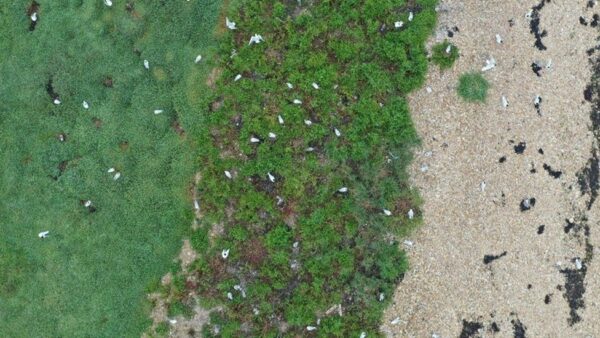Solent Seascape Project launched to restore marine habitats. It will see 10 organisations work together on four types of habitat – seagrass meadows, oyster reefs, saltmarsh and seabird nesting sites.
They aim to develop a plan to protect and restore “at least 30% of the Solent’s seascape”.
The Solent is recognised as an internationally-important wintering and breeding ground for seabirds.
Habitats have become “fragmented and degraded”, with mud and sand banks and the seabed under pressure from coastal development, project organisers said.
Louise MacCallum, of the Blue Marine Foundation described the approach as “pioneering”.
“Using our combined knowledge, passion and experience on a project which will genuinely benefit marine wildlife in an area of the world we all love is such an amazing thing to be able to do.” (photo: Solent Seascape Project/BBC)
Dr Joanne Preston from the University of Portsmouth, which is leading the project’s scientific monitoring work said: “Embarking upon a marine habitat restoration project at this scale is truly ground breaking from a scientific perspective.
“It will be fascinating to compare the ecosystem benefits of restoration work here in the Solent – a temperate seascape – to those seen in tropical systems where restoration techniques are slightly further ahead.”
The project has been awarded the funds from the Endangered Landscapes Programme.
The 10 organisations involved are the Blue Marine Foundation, RSPB, Hampshire & Isle of Wight Wildlife Trust, Project Seagrass, Natural England, Environment Agency, Coastal Partners, Isle of Wight Estuaries Project, Chichester Harbour Protection and Recovery of Nature (CHaPRoN) and University of Portsmouth.
Further information from the BBC news story can be read here.
